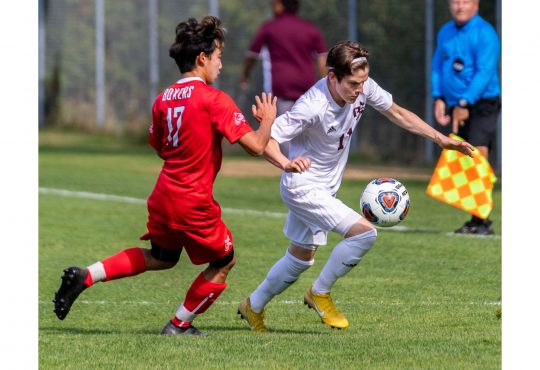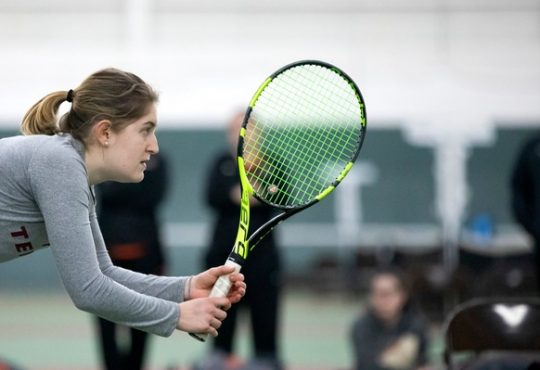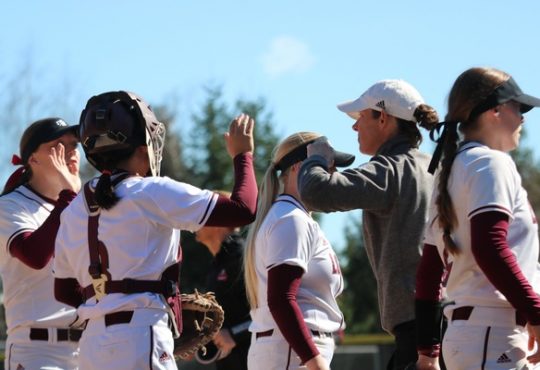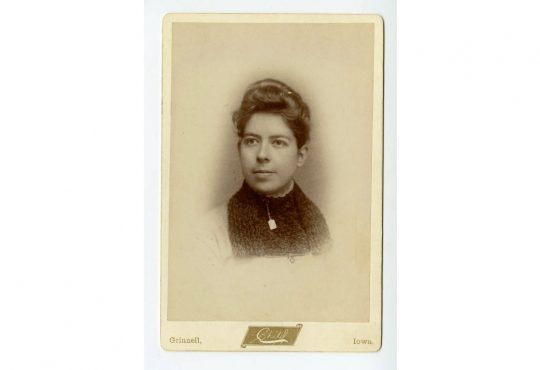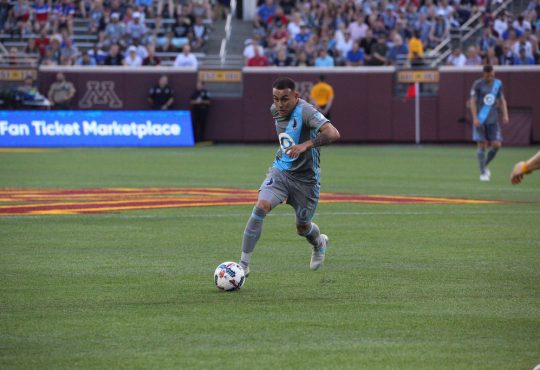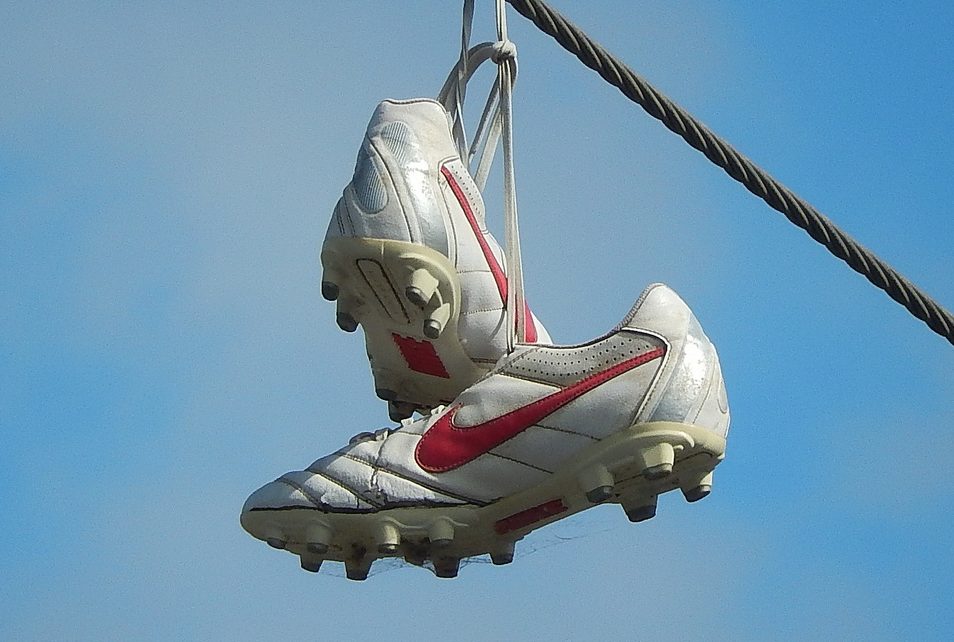
Almost every athlete who steps onto a field, court or pitch faces at least one severe injury during their career that sits them on the bench for several months, sometimes years. Unfortunately, I have been one of the many women on the Puget Sound women’s soccer team to face a detrimental injury that once ended my season, and now has ended my career.
Since I was 5 years old soccer has made up much of my identity. Every weekend, every summer and every winter break was planned around my soccer schedule. When I reached age 14, I knew I wanted to continue my soccer career into college. Every free minute I had I would be in my backyard working on my foot skills or forcing my little brother to go to the local park to pass with me. I didn’t just want to play at the college level, I wanted to play four years and succeed.
Once I got to Puget Sound I continued to fall more in love with the game. However, just a week ago I was told I could never play soccer again because of a back injury.
At the end of my first college season, I began to have severe back and leg pain. As I continued through the off-season the pain grew worse. One day later that spring I fell during a fitness test and lost all feeling in both my legs. After a series of tests, x-rays and MRIs I found out that I had a broken vertebra, a herniated disc and a series of severed nerves in my lumbar spine.
After multiple insufficient cortisone injections, I had surgery in December of 2015, my sophomore year. That whole season leading up to my surgery were the most emotionally draining and painful months. I cried during every practice I watched. Additionally, the physical pain and inability to exercise or get my heart rate up increased my anxiety and depressive emotions, making it extremely hard to focus in class and on the sidelines. Soccer was my identity and I did not know how to function without it.
Now I am in the end of my senior season of college soccer. I completed a full season my junior year and then it came back. The pain, the numbness, the weakness, the moodiness and the anxious feelings all came flooding back.
Just a week ago a new MRI of my lumbar confirmed a re-herniation of my disc at L5-S1, putting pressure on my spinal cord and my S1 nerve root. I would need surgery again. I was crushed. My doctors, the Puget Sound athletic training staff and my family all told me it was time to hang up my boots. The field was no longer a safe place for me.
It is truly hard to describe in words the love a player has for their sport and teammates. There is nothing quite like it. The emotional connection an athlete has with their teammates because of the hours of work, sweat and tears put towards one shared goal; in the case of my teammates and I to put the ball in the back of the net. It seems simple, yet the time spent mentally off the field, the tough conversations had, and the love and support each teammate must provide to each individual is what embodies a true teammate.
My story is just one of many athletes who have experienced season/career-ending injuries. During just my senior season there have been five detrimental injuries on the women’s soccer team, proving the rigor of the sport and the fight of my teammates.
Knee injuries are an unfortunately common women’s soccer injury, specifically tearing one’s ACL. On the current women’s soccer team there are six women who have torn their ACL.
A current senior, Maggie Decena, describes her experience: “Last year, during my third season on the UPS women’s soccer team I tore my ACL. Unfortunately, an ACL tear is a season-ending injury because the estimated recovery time ranges from nine to 12 months depending on the individual.”
With any injury patience and a growth mindset is a necessity. Often experiencing a season-ending injury, individuals who want to continue their playing career must race to recover for the next season.
Decena explains the rehab process: “Rehab started less than a week after I had my surgery. The turnaround was very quick, something I really liked because the day I tore it was the day that people told me my recovery started. Recovering from any type of injury is so much more than just the physical aspect. It’s also about getting yourself ready emotionally. I told myself I had a couple days to be upset, but if I wasn’t positive mentally and emotionally with the process that I would struggle a lot.”
Many frustrations come with any injury, immobility, emotional increase and inability to exercise at an intensity a college level athlete is used to. During my first back injury, I became extremely anxious in the classroom and when falling asleep because of my limited availability to workout.
Sophomore Emily Ross, who has torn her ACL in both knees in the last two years, agrees: “I think the most challenging part about this injury for me is not being able to do high-intensity workouts for the first few months of recovery. It is often very frustrating. It’s a long process, however, the results are very worth it in the end.”
“One of the most challenging parts of my injury and recovery process is how drastically my role on the team changed. When you are injured you aren’t around as much, you don’t get to socialize with your teammates as much and you don’t get to travel with the team. It is so hard to suddenly not experience these things with your best friends and it is very difficult to find your new role on the team,” Tess Peppis said.
Earlier this season on Sept. 22 she experienced a season-ending injury when she tore her ACL at Willamette. Peppis, an extremely talented and influential senior, was only able to compete in three preseason games and three conference games before her season got cut short.
Peppis gives wise advice to those who may experience a severe injury in their future college athletic career: “I would say allow yourself to be upset and frustrated about this life-changing thing that just happened to you, but after a few days make sure you change your mindset and focus on the good things that are coming out of it. Having a positive outlook has allowed me to see so much good in this situation, regardless of how much it sucks. It does get better, you just have to be patient.”
One of the greatest benefits of being part of something bigger than yourself, while experiencing a bump in the road is the cumulative support from your teammates.
“I have learned that my team is the most amazing support system I have ever had. The amount of love and support they have given me in incredible. I definitely couldn’t do this without them,” Ross said.
As a college athlete the goal of your career should never to be to score the most goals and create the most stats, but to create the most memories and help your teammates be the most successful they can possibly be. Parting ways with a lifelong dream and identity makes me extremely sad. However, I know soccer will always be a part of my identity in some shape or form. Additionally, as I continue to recover from my injury I must hope and dream that someday, maybe, I will get to put my boots back on again.
Every season or career-ending injury must include hardship and gratitude to accomplish any steps towards recovery.
Decena summarizes it perfectly: “Celebrate the little victories. If you have a long recovery ahead of you, it is not all going to go your way. You are going to have good days and bad days and even setbacks. The thing that helped me stay positive throughout it all was getting excited about the little wins throughout my recovery. While I was injured, I would have given anything to get back onto the field with my best friends. Remember that and keep working towards it because before you know it, you will be.”

